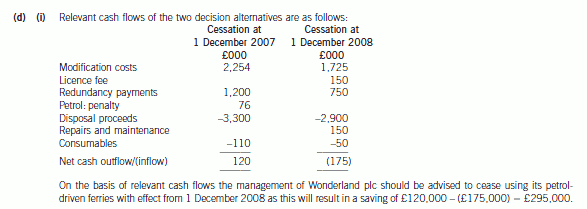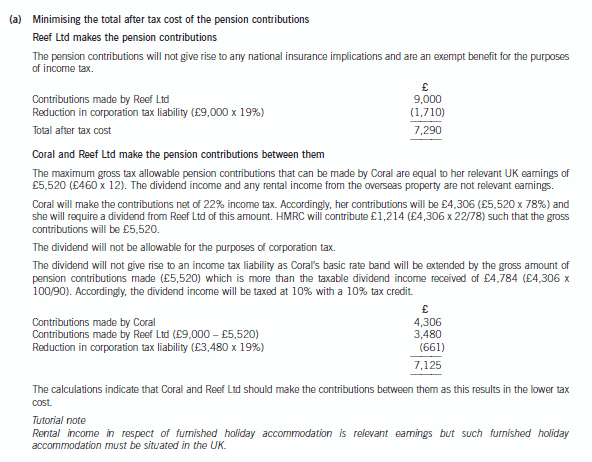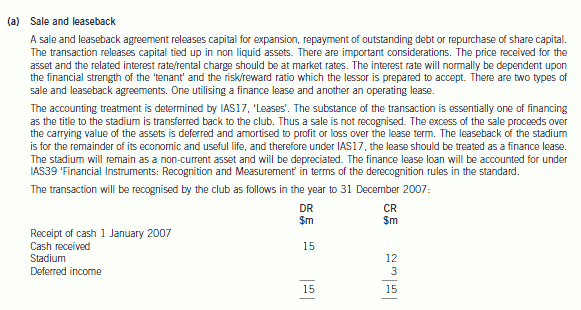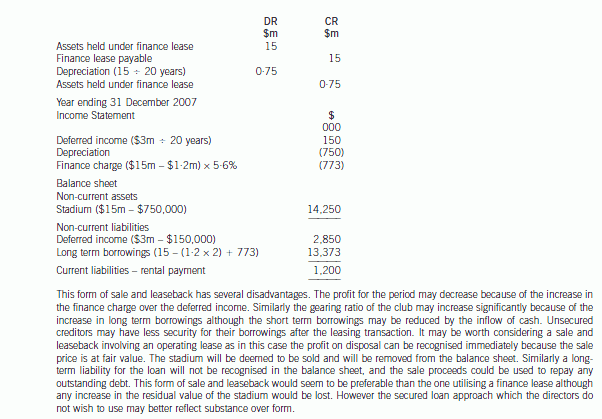速来看看本篇文章!关于报名ACCA考试需要英语基础吗
发布时间:2020-04-08
ACCA是国际注册会计师的简称,在国际化趋势的大环境下,以国际会计准则为基础的ACCA资格证书,成为越来越多的财会人士的理想选择。但是ACCA毕竟是一个全球通用的一大证书,尤其在语言方面。那么,ACCA对考试语言有哪些要求?必须精通英语吗?英语水平比较低的人可以不可以报考ACCA呢?不知道没关系,今天51题库考试学习网就为大家详细解答。
首先,ACCA全球各国家和地区都采用了英语考试,必须在英语环境中进行考试和答题。不过,ACCA对报考ACCA专业资格考试的人员的英语水平没有硬性要求,即不要求提供英语水平证书,只要申请人认为自己的英语水平可以胜任ACCA的考试就可以。
ACCA考试报名条件:
1、教育部认可的高等院校在校生(本科在校),顺利完成大一的课程考试,即可报名成为ACCA的正式学员;
2、凡具有教育部承认的大专以上学历,即可报名成为ACCA的正式学员;
3、未符合1、2项报名资格的申请者,可以先申请参加FIA(Foundations in
Accountancy)基础财务资格考试。在完成FAB(基础商业会计)、FMA(基础管理会计)、FFA(基础财务会计)3门课程后,可以豁免ACCA AB-MA-FA三门课程的考试,直接进入ACCA技能课程的考试。
ACCA的复习步骤主要分三大块。
第一,对于文字性的科目,比如F4公司法商法,F8审计,需要第一步树立各个章节以及整本书的逻辑框架结构。然后第二步,逐章逐节将每个知识点细节填充进去,让知识架构更清晰饱满。当你理解了科目逻辑后,记忆知识点事半功倍。对于计算性的科目,比如F3,F6等,就需要理解计算的逻辑或者模版,大量练习巩固。一般而言,ACCA的试题册前面会给出公式表,不过一般在练习过程中自己都背诵下来了。重点还是要根据计算的数据去分析它体现的问题。
第二,整理好书本知识后,就需要大量刷题。例如:BPP练习册,历年真题模拟题,考前一定要刷两遍练习册,两三套真题,两三套模拟题,这样也会培养题感,更加熟练。
第三,刷完题后一定要整理。错题结合知识点进行分析,把自己不懂的点或者重难点拎出来,单独对比。并且在考前,一定要去看看官网公布的考官导读,在考官信息里会透露本次考察的重点范围,有时候直接会在考试里遇到哦。
愉快的时光总是很短暂,以上就是今天51题库考试学习网为大家分享的全部内容,大家是否清楚了呢?如有其他疑问请继续关注51题库考试学习网!
下面小编为大家准备了 ACCA考试 的相关考题,供大家学习参考。
(d) The management of Wonderland plc have become concerned about the increased level of operating costs
associated with its petrol-driven ferries and have made a strategic decision to dispose of these. They are now
considering entering into a contract with the Newman Steamship Company (NSC), a shipping organisation based
in Robynland. The contract would entail NSC providing transport to and from Cinola Island for all visitors to the
zoo and circus.
As a result of negotiations with NSC, the directors of Wonderland plc are considering two options whereby NSC
will become responsible for the transportation of visitors to and from Cinola Island with effect from 1 December
2007 or 1 December 2008.
Additional information is available as follows:
(1) NSC would require Wonderland plc to pay for the necessary modifications to their steamships in order that
they would satisfy marine regulations with regard to passenger transportation. The only firm which could
undertake this work is currently working to full capacity and would require a payment of £2,450,000 in
order to undertake the work necessary so that the ferries could be in operation by 1 December 2007. The
same firm would require a payment of £1,725,000 in order to make the necessary modifications so that
the ferries could be in operation by 1 December 2008. The government of Robynland would be willing to
pay a grant of 8% towards the cost of getting the ferries into operation by 1 December 2007, but would not
be willing to pay a grant in respect of any later date.
(2) On 1 December 2002 Wonderland plc paid £500,000 to the Port Licencing Authority of Robynland. This
payment was for a licence which entitles Wonderland plc to use all harbour facilities in Robynland during
the five-year period ending 30 November 2007. The licence could be renewed on 1 December 2007 at a
cost of £150,000 per annum.
(3) Redundancy payments would need to be paid in respect of loss of employment. These would amount to
£1,200,000 if the contract with NSC commenced on 1 December 2007. This amount would reduce to
£750,000 if the contract commenced on 1 December 2008.
(4) Wonderland plc has a contract for the provision of petrol for its ferries which is due to expire on 30 November
2008. Early termination of the contract would incur a penalty charge of £76,000. An emergency reserve
stock of petrol held by Wonderland plc, which cannot be used after 30 November 2007 due to marine
regulations regarding the age of fuel, could be sold for £55,000 on 1 December 2007 but not on any date
thereafter.
(5) The ferries could be sold for £3,300,000 on 1 December 2007. If retained after 1 December 2007 the
ferries would require servicing during the year ending 30 November 2008 which would incur costs
amounting to £150,000. The resale value of the ferries on 1 December 2008 would be £2,900,000.
(6) Stock of consumable items which originally cost £150,000 could be sold on 1 December 2007 for
£110,000 and on 1 December 2008 for £50,000.
Required:
(i) On purely financial grounds, advise whether the management of Wonderland plc should enter into a
contract with NSC with effect from 1 December 2007 or 1 December 2008. You may ignore the time
value of money. (9 marks)

(b) Using the information provided in the case scenario, strategically evaluate the performance of the company
up to 2004, indicating any areas of particular concern. (20 marks)
(b) Essentially, Universal is a one product or service company selling its services into two main customer segments in the housing
market. From the performance information provided in Table 1, the company has achieved impressive rates of growth over
the 2001–4 period and this growth has come almost exclusively from private house owners. Universal is in the replacement
market. Its customers are looking to replace existing roofing systems with low maintenance/high attractiveness Universal
systems. To date growth has been exclusively within one region and been achieved by growing the area served through
investment in showrooms and depots.
Universal has chosen to grow its business through a differentiation focus strategy. It has identified a niche not served by the
major PVC doors and windows installers and poorly served by small independent installers. The value chain analysis
discussed above has shown the ways in which Universal has successfully distinguished itself from its competitors. Growth
has been through increasing its market penetration of one particular region. Such is the size of the private house owner market
and the lack of effective competition that the company has achieved a significant share of the market in its particular region.
However, in national terms, with 1% of the available market, Universal is a small operator. What is clear from the sales figures
is that as the firm grows bigger the relative rate of growth inevitably slows down, so that by 2004 it has an annual growth of
27% – still impressive by most companies standards. The move into supplying the commercial housing market has been
successful, but the share of total sales seems to have stabilised at around 5%. Universal clearly is finding it difficult to commit
sufficient new resources to this sector while coping with the growth from the domestic housing sector. Direct labour and other
direct costs seem to be a reasonable proportion of sales and predictably grow with the number of installation teams. Overall,
the gross margin, which sustains sales, marketing and overhead expenses, is moving in the right direction with a gross margin
of 52·6% achieved in 2004.
Labour, not surprisingly in a service business, consumes a considerable amount of costs. If one combines the direct labour
with the commission costs of sales canvassers and representatives together with salaries to staff in head office, one is in a
business where well over 50% of costs are attributable to people. Equally important is the fact that over 80% of the staff
employed by Universal is paid by results. This has significant consequences for the structure of reward systems and the
training and development of staff looking to maximise their incomes through either their individual or team performance.
Clearly, Universal sees no incompatibility between a reward system dominated by payments by results and the delivery of a
quality service differentiating it from its competitors.
Marketing has grown considerably over the period and reflects the recruitment of Mick Hendry as Sales and Marketing Director
in 2002. The marketing and sales model is very much one influenced by the one used by large PVC installers of doors and
windows. Here there is a heavy emphasis on direct selling techniques supported by increasing levels of advertising. Universal
sells to its customers directly and therefore avoids the costs and channel complications of using third parties to provide its
services. In many ways the direct selling techniques used are a very well established way of reaching the customer. Elements
of the marketing mix may be influenced by changes in communication technology, but the nature of the service requires
effective face-to-face contact with the customer. Sales to private house owners using credit generates significant finance
commission and is an important source of extra margin to Universal. Often in businesses depending on significant amounts
of credit sales the sales representative receives significant reward for selling a finance arrangement to the customer.
In terms of net profit achieved, 2001 and 2002 represents a significant change and, as argued in the scenario, this reflects
the recruitment of the Sales and Marketing Director. The achievement of this ‘step change’ in sales required commensurate
increases in most costs, but it is the significant increase in sales costs that explains the losses experienced in 2002. Sales
costs as a proportion of total sales rose from 14% in 2001 to almost 34% in 2002.
Particularly significant is the increase in sales commissions paid. The detailed changes in the way commission is paid is not
given in the case scenario, but it seems likely to reflect the previous experience of the Sales and Marketing Director in a closely
related industry. Similar levels of sales costs are incurred in 2003 and 2004 but the increase in sales, improvement in gross
margin and slower rate of growth in commissions paid explain the improved return on sales from –6·7% in 2002 to 4·2%
in 2003 and 5·8% in 2004.
Equally significant is the growth in showrooms and depots to support the growth in sales. Each additional facility costs in the
order of £30K with significant additions to costs in terms of staff and stock. Overall the performance of Universal over the
2001–2004 period is of a company achieving high rates of growth, incurring significant costs in so doing and moving into
modest levels of profit over the period. Its cost structure reflects the service it provides and the staff and reward systemsenabling the service to be provided.
4 Coral is the owner and managing director of Reef Ltd. She is considering the manner in which she will make her first
pension contributions. In November 2007 she inherited her mother’s house in the country of Kalania.
The following information has been extracted from client files and from telephone conversations with Coral.
Coral:
– 1972 – Born in the country of Kalania. Her father, who died in 2002, was domiciled in Kalania.
– 1999 – Moved to the UK and has lived and worked here since then.
– 2001 – Subscribed for 100% of the ordinary share capital of Reef Ltd.
– Intends to sell Reef Ltd and return to live in the country of Kalania in 2012.
– No income apart from that received from Reef Ltd.
Reef Ltd:
– A UK resident company with annual profits chargeable to corporation tax of approximately £70,000.
– Four employees including Coral.
– Provides scuba diving lessons to members of the public.
Payments from Reef Ltd to Coral in 2007/08:
– Director’s fees of £460 per month.
– Dividends paid of £14,250 in June 2007 and £14,250 in September 2007.
Pension contributions:
– Coral has not so far made any pension contributions in the tax year 2007/08 but wishes to make gross pension
contributions of £9,000.
– The contributions are to be made by Reef Ltd or Coral or a combination of the two in such a way as to minimise
the total after tax cost.
– Any contributions made by Coral will be funded by an additional dividend from Reef Ltd.
House in the country of Kalania:
– Beachfront property with potential rental income of £550 per month after deduction of allowable expenditure.
– Coral will use it for holidays for two months each year.
The tax system in the country of Kalania:
– No capital gains tax or inheritance tax.
– Income tax at 8% on income arising in the country of Kalania.
– No double tax treaty with the UK.
Required:
(a) With the objective of minimising the total after tax cost, advise Coral as to whether the gross pension
contributions of £9,000 should be made:
– wholly by Reef Ltd; or
– by Coral to the extent that they are tax allowable with the balance made by Reef Ltd.
Your answer should include supporting calculations where necessary. (9 marks)

3 Seejoy is a famous football club but has significant cash flow problems. The directors and shareholders wish to take
steps to improve the club’s financial position. The following proposals had been drafted in an attempt to improve the
cash flow of the club. However, the directors need advice upon their implications.
(a) Sale and leaseback of football stadium (excluding the land element)
The football stadium is currently accounted for using the cost model in IAS16, ‘Property, Plant, and Equipment’.
The carrying value of the stadium will be $12 million at 31 December 2006. The stadium will have a remaining
life of 20 years at 31 December 2006, and the club uses straight line depreciation. It is proposed to sell the
stadium to a third party institution on 1 January 2007 and lease it back under a 20 year finance lease. The sale
price and fair value are $15 million which is the present value of the minimum lease payments. The agreement
transfers the title of the stadium back to the football club at the end of the lease at nil cost. The rental is
$1·2 million per annum in advance commencing on 1 January 2007. The directors do not wish to treat this
transaction as the raising of a secured loan. The implicit interest rate on the finance in the lease is 5·6%.
(9 marks)
Required:
Discuss how the above proposals would be dealt with in the financial statements of Seejoy for the year ending
31 December 2007, setting out their accounting treatment and appropriateness in helping the football club’s
cash flow problems.
(Candidates do not need knowledge of the football finance sector to answer this question.)


声明:本文内容由互联网用户自发贡献自行上传,本网站不拥有所有权,未作人工编辑处理,也不承担相关法律责任。如果您发现有涉嫌版权的内容,欢迎发送邮件至:contact@51tk.com 进行举报,并提供相关证据,工作人员会在5个工作日内联系你,一经查实,本站将立刻删除涉嫌侵权内容。
- 2020-01-10
- 2020-01-03
- 2020-01-03
- 2020-01-03
- 2020-01-10
- 2019-01-06
- 2020-01-09
- 2020-01-10
- 2020-02-26
- 2020-01-03
- 2020-02-23
- 2020-02-28
- 2020-01-10
- 2019-01-06
- 2020-01-10
- 2020-02-23
- 2020-07-31
- 2020-01-10
- 2020-02-22
- 2020-01-10
- 2020-03-05
- 2020-03-25
- 2021-08-21
- 2019-01-06
- 2020-01-09
- 2020-02-26
- 2020-01-10
- 2020-02-21
- 2020-01-10
- 2020-02-22